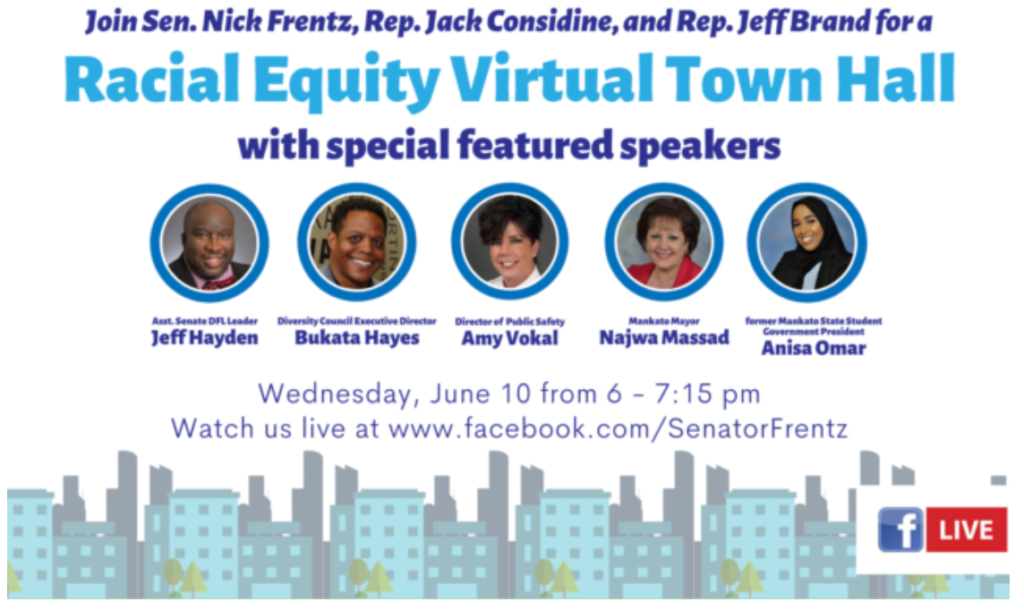When it comes to addressing racial equity issues in education, health care, and housing, racism is a barrier. But I would argue that fiscal conservatism is an even bigger barrier.
In Minnesota’s policymaking debates about racial equity, this is the unacknowledged “elephant in the room.” It is what makes all of the hopeful dialogue about addressing racial equity feel hollow to me.

DFL Governor Tim Walz, Speaker Melissa Hortman, and many others deserve a lot of credit for leading on police reform. Despite the failure to pass police reforms during the recent special session, I suspect they’ll eventually enact some police reforms. This is in large part because police reform is relatively inexpensive.
But beyond police reform, I’m pessimistic when it comes to DFLers being willing to address other major forms of systemic racism in society, such as in health care, housing and education.
That’s because most DFLers and all Republicans seem completely unwilling to make the case for higher taxes.
Elected officials need to get courageous and make the case that privileged white people like me need to pay higher taxes in order to build a more equitable state. I’m not naive about this. I’ve worked in and around politics for thirty five years, so I know tax-raising is excruciatingly painful for politicians, particularly in an election year. But if we truly care about making racial justice progress in this agonizing “educable moment,” there truly is no other way.
To cite just one example, Minnesota has long had some of the worst achievement gaps in the nation, gaps that open as early as age one. The roots of k-12 achievement gaps are early education opportunity gaps. Year after year, about 35,000 low-income Minnesota children can’t access the high quality early learning and care programs that they need to get prepared for school. Those 35,000 left-behind low-income kids are the children who are most likely to fall into achievement gaps in the school years and other types of disparities throughout their lifetimes. The lack of new revenue is why our 35,000 most vulnerable children continue to be left behind every year.
Similar tales can be told about many other issues, such as health care and housing. We know what to do in those areas as well, but we don’t do it, because the changes would necessitate requiring Minnesotans to pay higher taxes.
I understand why politicians are afraid of being branded tax raisers. But the inescapable truth is that lawmakers’ long standing insistence on perpetuating the fiscal status quo is perpetuating systemic racism.
So we need to start talking honestly about the fiscal side of these racial justice issues too. Until we do, progressive leaders’ lofty rhetoric about racial justice gains is just idle chatter.
